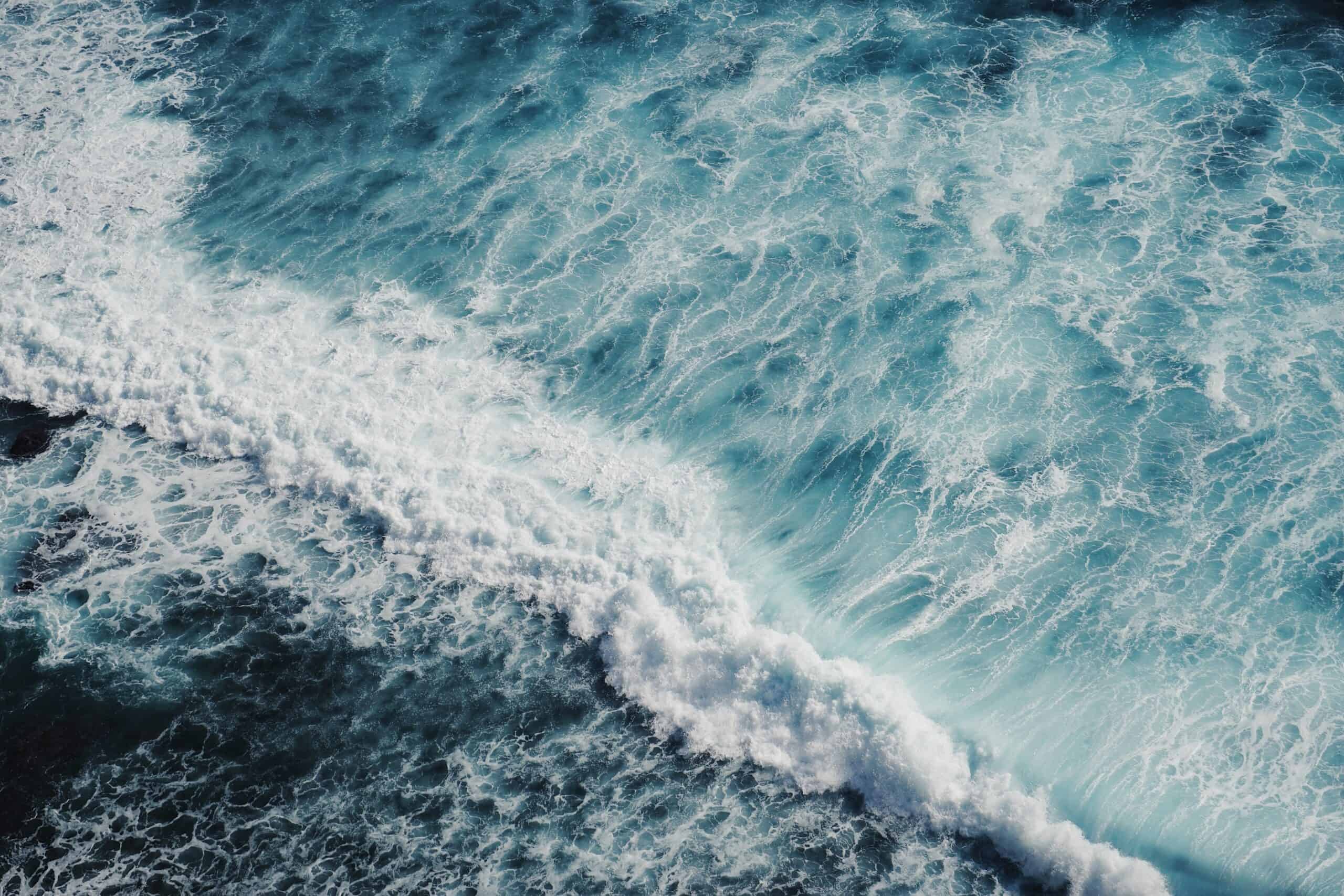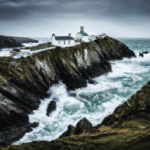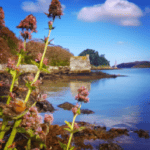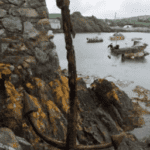In the stunning waters off West Cork, a captivating encounter with a basking shark was caught on video, showcasing the beauty of these magnificent creatures. Ireland’s Wildlife Tours captured mesmerizing footage of the second largest shark in the world, peacefully gliding through the sea. Harmless and feeding on plankton, these gentle giants are a remarkable sight to behold. This video offers a glimpse into the enchanting world of Ireland’s marine life, reminding us of the diverse wonders that call our waters home. Prepare to be amazed as you watch this awe-inspiring basking shark in West Cork.
Video of Basking Shark in West Cork
Iceland’s wildlife tours capturing the magnificent creature
Iceland’s wildlife tours have managed to capture the breathtaking sight of a basking shark in the waters off West Cork. The mesmerizing footage, captured several years ago, showcases the sheer beauty and elegance of this magnificent creature. The video highlights just how fortunate we are to have such incredible marine life in our own surroundings.
Reactions of onlookers and viewers
The video of the basking shark in West Cork has garnered significant attention and has left viewers and onlookers in awe. People were amazed at the size and gracefulness of the basking shark, as well as its harmless nature. The video sparked a sense of curiosity and wonder among those who watched it, creating a desire to learn more about these incredible creatures and the impact they have on our ecosystem.
Impact on tourism in West Cork
The sighting of a basking shark in West Cork has had a profound impact on tourism in the region. It has attracted nature enthusiasts and wildlife lovers from all over the world, eager to catch a glimpse of these awe-inspiring creatures in their natural habitat. The increased interest in marine wildlife has led to the development of eco-tourism initiatives, further boosting the local economy and creating opportunities for local businesses.
The Basking Shark
Description and distinguishing features
The basking shark, also known as Cetorhinus maximus, is the second-largest shark species in the world, surpassed only by the whale shark. It can reach lengths of up to 10 meters and can weigh over 5 tons. The basking shark is easily recognizable due to its massive size and distinctive appearance, characterized by its large, gaping mouth and elongated dorsal fin.
Dietary habits
Despite its intimidating size, the basking shark is a gentle giant. It is a filter feeder and primarily feeds on plankton, which it sieves through its gill rakers. These gill rakers act as a strainer, allowing the shark to extract the tiny organisms from the water as it swims with its mouth wide open. This dietary preference makes the basking shark an essential contributor to the marine ecosystem, as it helps maintain the balance of phytoplankton populations.
Common behaviors observed in basking sharks
Basking sharks are known for their leisurely swimming patterns near the surface of the water, often seen “basking” in the sunlight, hence their name. They are generally solitary creatures, but occasional aggregations may occur in areas rich with food sources. Basking sharks have also been observed breaching, leaping out of the water, and engaging in courtship behavior during the breeding season.
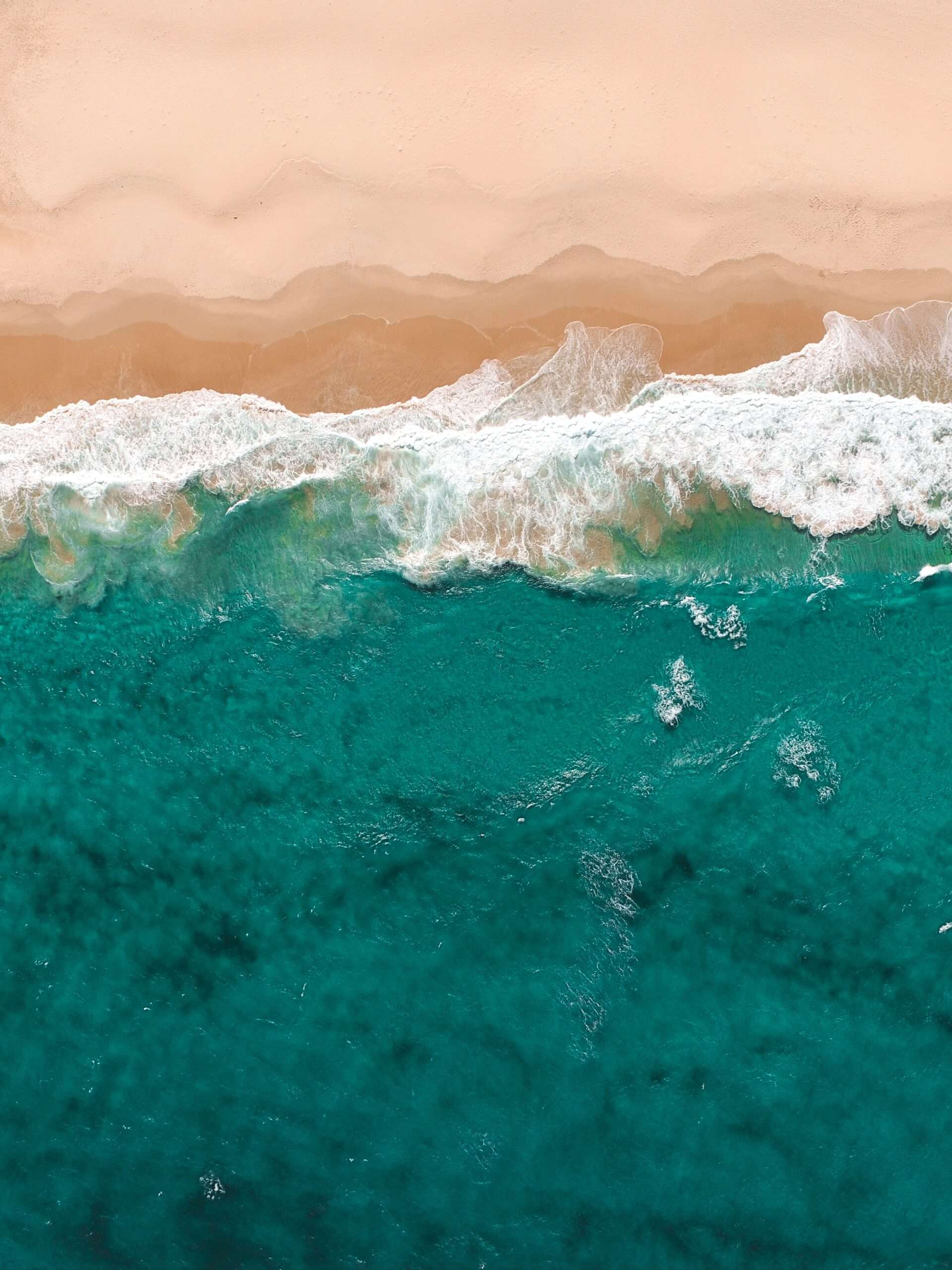
Seasonality of Basking Shark Visits in Irish Waters
Late spring and early summer as peak season
Late spring and early summer are the peak seasons for basking shark sightings in Irish waters. During this time, the waters off West Cork become a hotspot for these magnificent creatures as they migrate in search of abundant plankton blooms. The warmer water temperatures and longer daylight hours create ideal conditions for the basking sharks to feed and reproduce.
Explanation of their migratory patterns
Basking sharks are highly migratory, and their movements are influenced by various factors, including food availability and temperature. They follow the seasonal blooms of plankton, which serve as their primary food source. As the plankton concentrations shift with the changing seasons, basking sharks move to different regions to maximize their feeding opportunities.
How climate affects their presence
Climate plays a crucial role in the presence of basking sharks in Irish waters. Changes in ocean temperature and currents can influence the distribution and abundance of plankton, which in turn affects the availability of food for the basking sharks. Therefore, alterations in climate patterns can impact the timing and extent of basking shark visits, highlighting the interconnectedness between marine life and environmental conditions.
Size Comparison of Basking Sharks
Comparison with the whale shark
The basking shark is often compared to the whale shark due to its impressive size. While the basking shark falls slightly shorter in length compared to the whale shark, it still ranks as the second-largest shark species in the world. Both species share a filter-feeding lifestyle and have similar physical characteristics, such as their enormous mouths and elongated bodies.
How it ranks in the list of the world’s biggest sharks
In terms of size, the basking shark ranks among the world’s largest sharks. Its average length ranges from 6 to 8 meters, with exceptional individuals reaching lengths of up to 10 meters. While not quite as long as the whale shark, the basking shark’s sheer mass and weight make it an impressive contender in the world of marine giants.
Visual illustration to appreciate its immense size
To truly appreciate the immense size of a basking shark, visual illustrations and comparisons can be helpful. Imagine a creature as long as a double-decker bus, gliding effortlessly through the water. The sight of a basking shark in its full glory is an awe-inspiring experience that leaves a lasting impression on all who witness it.
Harmless Nature of Basking Sharks
Misconceptions about sharks in general
Sharks often suffer from misconceptions and negative stereotypes that portray them as vicious predators. However, it is crucial to debunk these myths and understand that not all sharks pose a threat to humans. Basking sharks are a prime example of this, as they are completely harmless and pose no danger to human beings.
Interactions between basking sharks and humans
Basking sharks are known for their passive and gentle behavior towards humans. They exhibit a natural curiosity, often approaching boats and divers but maintaining a safe distance. These interactions provide a unique opportunity for people to observe and appreciate these magnificent creatures up close, fostering a sense of connection and admiration for marine life.
Why basking sharks are safe to be around
Basking sharks have no interest in hunting or attacking humans. Their primary focus is on feeding and reproducing, making them indifferent to human presence. Despite their massive size, their filter-feeding mechanism renders them physically incapable of causing harm. Therefore, being in the presence of a basking shark is a safe and unforgettable experience.
Feeding Habits of Basking Sharks
Plankton as their main food source
Plankton forms the staple diet of basking sharks. As they swim through the water with their mouth open, they filter large quantities of water, trapping plankton on their gill rakers. The plankton, consisting of tiny plants and animals, provides the necessary nutrients for basking sharks to thrive. By consuming vast amounts of plankton, basking sharks play a vital role in maintaining the delicate balance of the marine ecosystem.
Feeding method and capacity
Basking sharks employ a feeding method known as ram filtration. They swim slowly with their mouths wide open, allowing water to flow in and out as they extract plankton. This constant flow of water ensures a continuous supply of food. Basking sharks possess an enormous feeding capacity, filtering up to 2,000 tons of water per hour, highlighting their important ecological role as primary consumers.
How they impact the marine ecosystem
Basking sharks have a significant impact on the marine ecosystem due to their feeding habits. By consuming large quantities of plankton, they help regulate plankton populations, preventing excessive blooms that can lead to imbalances in the marine food chain. Additionally, basking sharks provide a food source for other marine predators, further contributing to the overall health and diversity of the ecosystem.
Other Marine Life in West Cork’s Waters
Presence of humpback whales
West Cork’s waters are not only home to basking sharks but also harbor a diverse range of marine life. Humpback whales, known for their impressive acrobatic displays and haunting songs, frequent these waters during their annual migrations. The sighting of these majestic creatures adds to the allure of West Cork as a premier wildlife destination.
Sighting of dolphins and seals
Alongside the basking sharks and humpback whales, dolphins and seals can often be spotted in the waters of West Cork. Dolphins, known for their playful nature and sociability, delight visitors with their acrobatics and interactive behaviors. Seals, on the other hand, offer a glimpse into the fascinating world of marine mammals, often basking on rocks or swimming gracefully in the water.
Impact of these marine life on the region’s ecosystem and tourism
The presence of diverse marine life in West Cork’s waters has a profound impact on both the ecosystem and local tourism. These creatures contribute to the overall health and balance of the marine environment, playing essential roles in the food chain and nutrient cycling. Moreover, their presence attracts nature enthusiasts and wildlife lovers, boosting local tourism and supporting conservation efforts.
West Cork in the Bigger Picture
Attractions in the mainland and nearby islands
West Cork is not just a haven for marine life; it also boasts a wide range of attractions on the mainland and nearby islands. From picturesque coastal villages and stunning beaches to historical landmarks and vibrant cultural festivals, there is something for everyone in this captivating region. Visitors can explore ancient ruins, indulge in traditional Irish music, and immerse themselves in the rich history and culture of West Cork.
Tourist experiences offered in West Cork
Tourists visiting West Cork can engage in a plethora of unique experiences. They can embark on whale-watching tours, where they have the opportunity to witness the incredible sight of basking sharks, humpback whales, dolphins, and seals. Adventure seekers can try their hand at kayaking, surfing, or diving in the pristine waters of West Cork, while food lovers can savor locally sourced seafood and indulge in the region’s renowned culinary delights.
How wildlife contributes to the region’s charm
The abundant wildlife in West Cork’s waters contributes significantly to the region’s charm and allure. The opportunity to witness these magnificent creatures in their natural habitat creates a sense of wonder and appreciation for the natural world. The seamless integration of pristine landscapes, vibrant marine ecosystems, and authentic cultural experiences makes West Cork an irresistible destination for travelers seeking a unique and enriching adventure.
Conservation Efforts and Measures
Protection status of basking sharks
Basking sharks are a protected species in Irish waters, with conservation efforts in place to ensure their survival. They are listed as a priority species under the Irish Wildlife Act, which prohibits their intentional killing or disturbance. Strict regulations have been implemented to safeguard their habitats and promote responsible tourism practices to minimize negative impacts on their populations.
Conservation projects based in West Cork
Several conservation projects in West Cork are dedicated to studying and protecting basking sharks and other marine species. These projects involve research initiatives, public outreach, and educational programs aimed at raising awareness about the importance of marine conservation. By collaborating with local communities, scientists, and governmental bodies, these projects strive to maintain healthy marine ecosystems and secure the long-term sustainability of marine life in West Cork.
How the public can get involved in conservation
The public can actively participate in basking shark conservation efforts by supporting local conservation organizations, volunteering for research initiatives, or participating in educational programs. By spreading awareness about the importance of marine conservation and adopting responsible tourism practices, individuals can contribute to the preservation of basking sharks and their habitats. Small actions can make a big difference in protecting these magnificent creatures for future generations to enjoy.
Future Prospect of Basking Shark Sightings
Continuous climate change impact
Climate change poses a significant threat to marine ecosystems worldwide, including the waters off West Cork. Changes in ocean temperatures, currents, and food availability can disrupt the migratory patterns and behavior of basking sharks. It is essential to monitor and address these impacts to ensure the continued presence of these unique creatures in our waters.
Possible increase in shark tourism
As awareness and interest in marine wildlife grow, the tourism industry in West Cork may experience an increase in shark tourism. This presents both opportunities and challenges for the region. Responsible tourism practices and regulations must be implemented to ensure the sustainable and respectful interaction between humans and basking sharks. It is crucial to strike a balance that allows visitors to appreciate and learn from these magnificent creatures without causing harm to their populations or habitats.
Implication for the marine ecosystem and wildlife diversity of West Cork
The future prospect of basking shark sightings holds potential implications for the marine ecosystem and wildlife diversity of West Cork. The presence of basking sharks indicates a healthy and thriving ecosystem, as they serve as indicators of water quality and plankton abundance. Their continued presence contributes to the overall resilience and biodiversity of the region, highlighting the interconnectedness between different species and the importance of maintaining ecological balance.
In conclusion, the video of a basking shark in West Cork has provided a captivating glimpse into the natural wonders that surround us. The sheer size and gracefulness of these gentle giants have left viewers in awe, sparking a deeper appreciation for the beauty and importance of marine life. The presence of basking sharks, along with other magnificent creatures, contributes to the charm and allure of West Cork, making it a premier destination for nature enthusiasts and wildlife lovers. As we look towards the future, it is essential to continue supporting conservation efforts and responsible tourism practices to ensure the long-term survival of basking sharks and the preservation of West Cork’s rich biodiversity.

